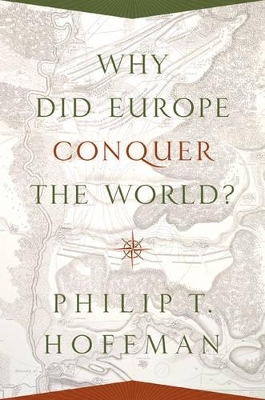
Why Did Europe Conquer the World?
Princeton University Press (Verlag)
978-0-691-13970-8 (ISBN)
- Titel z.Zt. nicht lieferbar
- Versandkostenfrei innerhalb Deutschlands
- Auch auf Rechnung
- Verfügbarkeit in der Filiale vor Ort prüfen
- Artikel merken
Philip T. Hoffman is professor of business economics and professor of history at the California Institute of Technology.
Chapter 1 Introduction 1 Chapter 2 How the Tournament in Early Modern Europe Made Conquest Possible 19 Chapter 3 Why the Rest of Eurasia Fell Behind 67 Chapter 4 Ultimate Causes: Explaining the Difference between Western Europe and the Rest of Eurasia 104 Chapter 5 From the Gunpowder Technology to Private Expeditions 154 Chapter 6 Technological Change and Armed Peace in Nineteenth-Century Europe 179 Chapter 7 Conclusion: The Price of Conquest 205 Appendix A Model of War and Technical Change via Learning by Doing 215 Appendix B Using Prices to Measure Productivity Growth in the Military Sector 228 Appendix C Model of Political Learning 231 Appendix D Data for Tables 4.1 and 4.2 233 Appendix E Model of Armed Peace and Technical Change via Research 234 Acknowledgments 239 Bibliography 241 Index 263
| Reihe/Serie | The Princeton Economic History of the Western World |
|---|---|
| Verlagsort | New Jersey |
| Sprache | englisch |
| Maße | 152 x 235 mm |
| Gewicht | 539 g |
| Themenwelt | Geisteswissenschaften ► Geschichte ► Allgemeine Geschichte |
| Geisteswissenschaften ► Geschichte ► Regional- / Ländergeschichte | |
| Geschichte ► Teilgebiete der Geschichte ► Wirtschaftsgeschichte | |
| ISBN-10 | 0-691-13970-9 / 0691139709 |
| ISBN-13 | 978-0-691-13970-8 / 9780691139708 |
| Zustand | Neuware |
| Haben Sie eine Frage zum Produkt? |
aus dem Bereich



